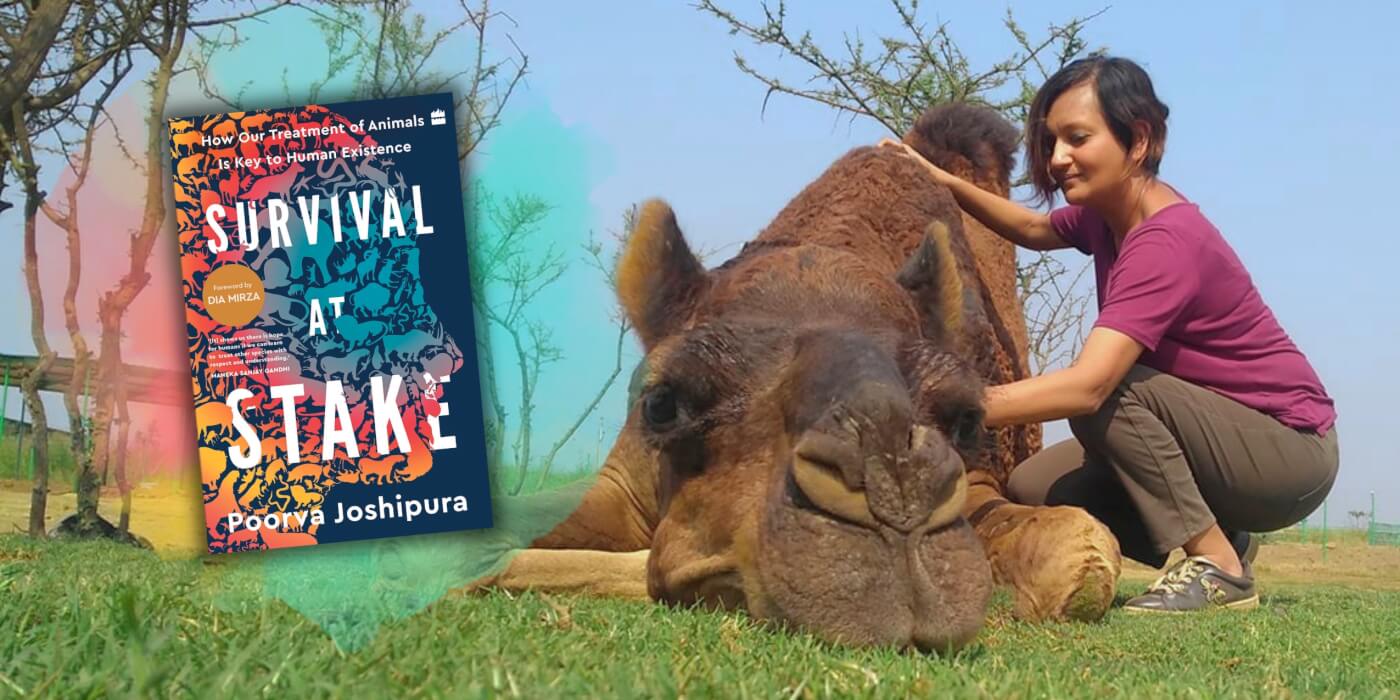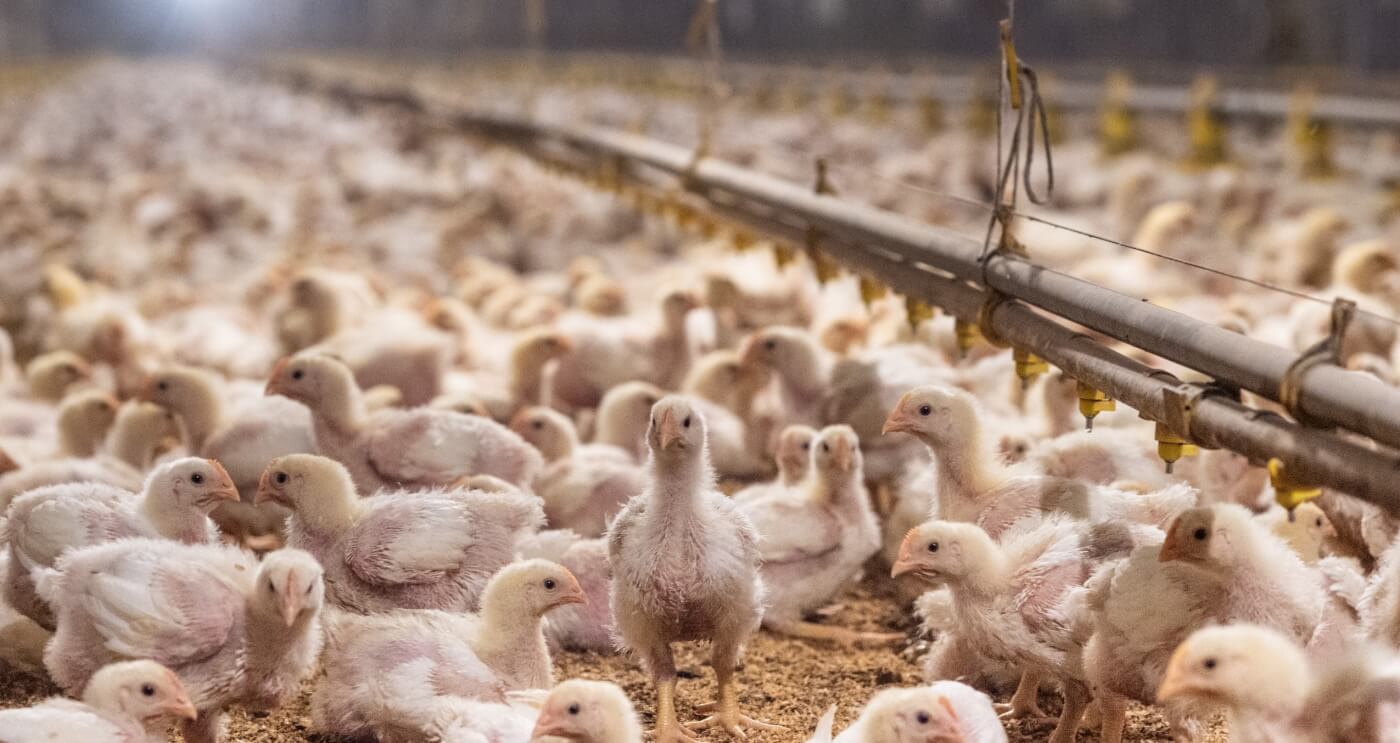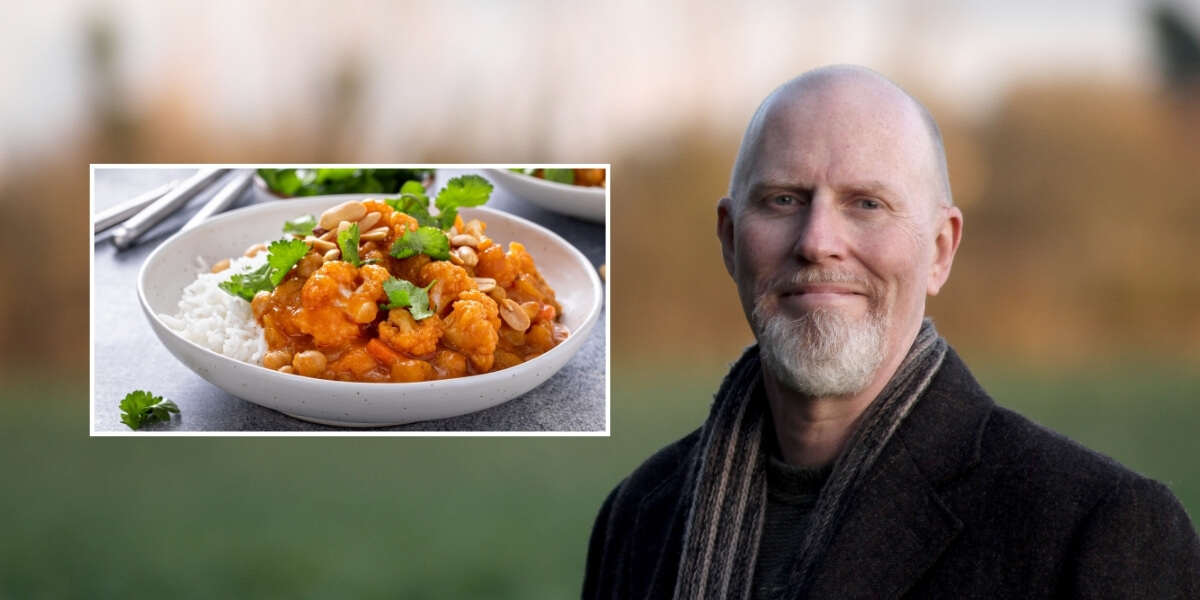Survival At Stake
PETA UK’s Poorva Joshipura Offers a Prescription for a Planet in Crisis

Climate catastrophe–fueled fires and floods. Pandemics. Polluted air and water. Violent crimes. In her gripping book Survival at Stake: How Our Treatment of Animals Is Key to Human Existence, PETA UK Senior Vice President of International Affairs Poorva Joshipura takes a hard look at how humans’ exploitation of other species is causing a domino effect of disasters and discusses how we can emerge from it all.
“Survival at Stake may be the most fascinating and troubling book you will ever read. Tracing the path that brought us HIV, COVID-19, and other killers, it shows exactly how to protect against future threats. More than a wake-up call, it is an alarm bell for environmental and health risks, along with a well-mapped escape route. The real gift of this book is its optimism. It shows how the steps that protect our health and those that protect our planet and the animals with whom we share it are one and the same.”
– Dr Neal Barnard, president of the Physicians Committee for Responsible Medicine
The Dangers of Treating Beings as ‘Things’
From wildlife markets’ link to diseases like COVID-19 to how deadly blood sports such as dogfighting encourage other violent practices to the ways experiments on animals not only fail to cure human diseases but also cause them when pathogens cross species lines, Joshipura lays out how treating sentient beings as “things” harms us all.

But there is hope: As she explains, it starts with realizing that we’re no different from our fellow Earthlings in any relevant respect – and that our survival is inextricably tied to theirs.
Enjoy these excerpts from Survival at Stake:
For most of us, our relationship with other animals (henceforth, “animals”) is based on an assumption of human superiority – or speciesism, a bias in favor of our own species, just as racism is typically a bias in favor of one’s own skin color and sexism is a bias, usually referred to in relation to men, in favor of their own gender. And as is historically the case with other “-isms,” speciesism is today so prevalent that it is usually regarded as truth, with other perspectives often dismissed and even ridiculed. This is traditionally so especially in Western cultures. “They’re just animals,” we may say as we cut them to pieces for taste, peel off their skin for shoes, poison them in product experiments, beat them for entertainment, and use them for other human desires, and everyone will understand exactly what we mean. That is that we consider their being animals alone enough to justify anything we may do to them for any reason.
But now, COVID-19 has given the world a stinging wake-up call: that speciesism, or rather an “egocentric worldview,” can form the basis for much of our own suffering and that it is not, in fact, advantageous to consider only the microcosm of certain business benefits while disregarding animals’ wellbeing. In other words, ignoring the larger picture comes at our own peril.
If we accept that we are animals, interconnected to other species, similar to them in ways that matter, and are a part of, rather than holding dominance over, nature, then we can begin to open our eyes to why our treatment of animals and how we use them affects us – from the largest elephant to the smallest bee.
Face the Facts – Then Act!
Oxfordshire County, England, Councilor Ian Middleton convinced his council to serve exclusively vegan foods because eating meat, eggs, and dairy fuels the climate catastrophe – and causes cruelty to animals and human diseases. At his urging, other city and county councils have done the same, including in Oxford and Exeter. “This is a very minor change that sends a powerful message to the people we represent that we take tackling climate change seriously and are prepared to play our part as community leaders,” says Middleton.

Keep the momentum going: Share Survival at Stake and information about how animal agriculture is destroying the planet with your local decision-makers, and ask them to make future events vegan.
Be Part of It!
Order your copy of Survival at Stake from the PETA Shop or your local bookseller – and pass it along to someone who needs to read it or buy them a copy. Ask your local library to order it, too.



